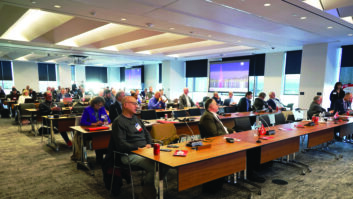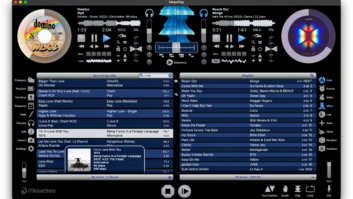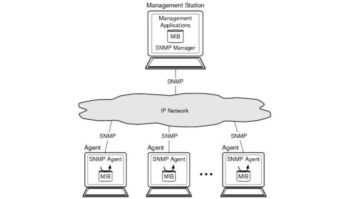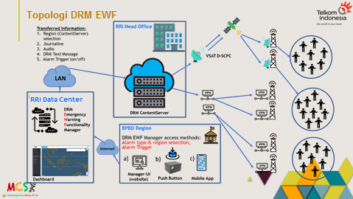More Legislation Has Been Proposed to Stop Record Industry Bleeding, But Is It the Best Solution?
Although we rarely acknowledge it today, the process of sound recording must have seemed almost magical when first introduced. The ability to capture and replay temporal experience was akin to the fictional time machine – yet it was real. Of course, early recordings were of low fidelity, but it hardly mattered. (If your dog started talking, no one would complain that he used poor grammar, at least not at first.)
Since those early times, myriad improvements and breakthroughs have occurred, each bringing improved fidelity and usability. This process had broad additional resonances, however, with impacts ranging from the creation of superstar recording artists to the development of royalty-collection businesses.
As the involved technologies progressed, the business side of the industry had to keep up and adapt itself to new models of distribution. Like other such processes, new techniques are modeled on the old, just as the first fonts for Gutenberg’s printing press looked like handwritten calligraphy.
What today seems like an arcane process for music royalty payments resulted from this incremental modeling, with its roots based on compensation schemes for live musical performances and sheet music sales. But it’s always a challenge for business and government to keep up with the pace of technological change.
A different world
Music distribution certainly has gone through a lot of changes in the last few years. Unfortunately, some of the technologies used had the unintended consequence of allowing musical content to be distributed with little or no compensation flowing to the musicians and other rights holders. This has created a climate in which the music industry now acts with extreme caution in any new media licensing negotiations, while stressing the need for reliable content protection technologies in any new distribution modes.
It has also engendered a process by which the music industry is attempting to correct past lapses via litigation and enactment of new regulation and legislation.
One such legislative approach that has recently been introduced is called the Platform Equality and Remedies for Rights Holders in Music Act of 2006 – the PERFORM Act, for short – the draft bill for which was proposed by Sen. Dianne Feinstein (D-Calif.).
It is aimed specifically at curbing the abilities of new satellite radio recording devices; but if adopted, it could easily (and some feel is quite likely to) be extended to apply more broadly.
The bill has three primary points:
1) Satellite radio recorders would be limited to real-time recording of complete programs or blocks of time, and could not be programmed to record only music from specific artists, albums, genres, etc.
2) The devices could not edit the recordings or otherwise selectively playback (or even change the order of) individual songs from the recordings made off the air.
3) Satellite radio operators could be required to pay additional royalties for music if recorders did not observe these restrictions – or possibly even if they did, if it could be shown that recordings were reducing sales.
Note that unlike terrestrial radio, satellite radio already pays performance royalties to record companies for broadcasting music, so point 3 above would involve a second royalty payment to allow consumers’ unrestricted recording.
Swift reaction
The Consumer Electronics Association and others have responded quickly to this draft proposal with vociferous denunciation. The CEA has made its usual points rejecting any attempt by the content industry to dictate how its members’ products must be designed, and defending consumers’ fair-use rights to record music freely for personal use.
These critics of the bill have also noted that recording from satellite radio – even with an advanced recording device – is not equivalent to a music download service. It is not interactive (i.e., consumers cannot “order” a particular song to be played), and the audio signal typically is subjected to additional audio processing and a higher degree of data compression than the typical music file download, so audio fidelity may be inferior to what a consumer would receive from a music download service.
Further, CEA cites that satellite radio recording devices are still constrained devices, which do not allow songs recorded off the air to be digitally transferred to CDs or other devices. Thus the content also cannot be easily retransmitted via the Internet.
The bill would also allow royalty collection agencies to monitor satellite radio services without paying subscription fees – a small but particularly galling point to those with opposing views.
Finally, the CEA points out that the industry already is working toward private agreement on the issue, so government intervention is particularly unwelcome and unnecessary at this time. For example, Sirius recently proposed that a flat fee would be paid to record companies (to be fairly divided among them) for each sale of a receiver that included satellite radio recording capabilities. This would shift the royalty from a per-song to a per-device basis – a different but potentially workable approach, and not unlike the recorder royalties already paid by these and other consumer recorders under the Audio Home Recording Act of 1992 (AHRA), or the blank tape royalties levied in other countries.
The fact that these negotiations are now taking place with the threat of impending legislation on one of the parties provides an unfair basis for the discussion, CEA claims.
A slippery slope
If the PERFORM Act or similar legislation is enacted, it could set a precedent that might be extended to cover future recording devices for terrestrial digital radio. This could force terrestrial radio to pay performance royalties on broadcast music – something it has never had to do.
Clearly the music industry has been burned by its experience to date in the digital distribution domain, so it is now acting with an excess of caution and a proactive lobbying stance. This is clouding the waters of progress and innovation for broadcasters and other music distributors, and possibly chilling innovations that would otherwise be under development or on the shelves.
Naturally, the PERFORM Act is yet another item broadcasters will want to track carefully as it makes it way through the halls of Congress.












